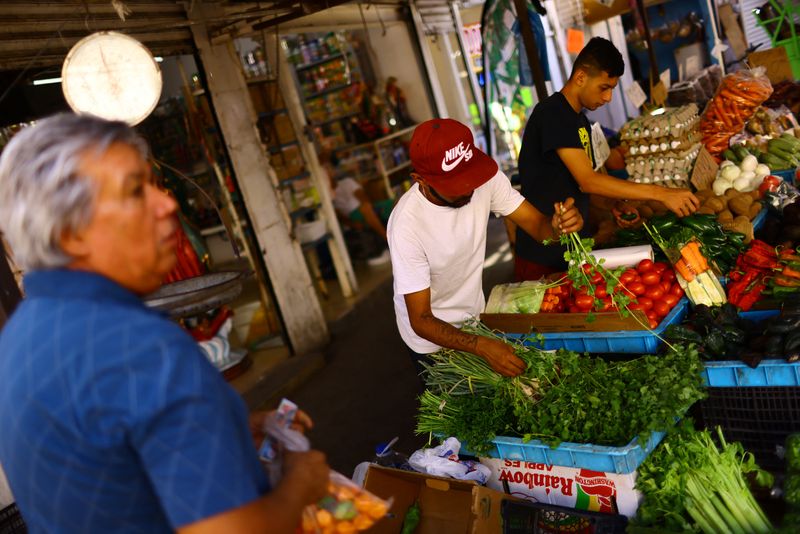MEXICO CITY (Reuters) -Mexico saw its annual inflation rate slow for the sixth consecutive month in July to 4.79%, data from statistics agency INEGI showed on Wednesday, continuing a downward trend spurred by a long cycle of interest rate hikes.
Headline inflation was in line with a market forecast of 4.79%, a more than a two-year low after rising to a record 8.7% last year.
The deceleration in recent months has largely been propelled by a decline in energy and food prices, Goldman Sachs (NYSE:GS) analyst Alberto Ramos said.
Consumer prices rose 0.48% in July from June, according to non-seasonally adjusted figures, just under the expected rise of 0.49%.
The closely watched core price index, which strips out some volatile food and energy prices, rose 0.39% during the month.
Annual core inflation in July, considered a better gauge of price trends because it excludes some highly volatile items, was 6.64%, below the estimated 6.68% and the lowest level since February 2022.
Underlying inflation pressures have been easing up with "solid performance of the Mexican peso over the last few quarters, falling inflation expectations and low input costs," said Pantheon Macroeconomics in a note, which would allow policymakers to cut rates from the fourth quarter onward.
However, with services inflation remaining "sticky" by holding steady from June at 5.2% year-over-year - reflecting the strength of the labor market and wage growth - inflation could remain above target until late 2024, analysts at Capital Economics cautioned.

Mexico's central bank has held its interest rate steady at a historic high of 11.25% and said it expects to keep it there for an "extended period."
The bank, which has an inflation target of 3% plus or minus 1 percentage point, is set to announce its next interest rate decision on Thursday.